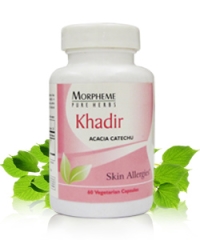The first eczema symptoms usually appear before age 5 and can continue sporadically into adulthood. Often people who have eczema also have asthma or other allergies. This condition may be hereditary but it is not contagious.
Eczema symptoms may begin as people age and first appear in the elderly. Changes in circulation as people age may cause sensitivity to cold which aggravates eczema symptoms.
Look for reddish patches of skin usually on the hands and feet, forearms and legs but can appear almost anywhere on the body. Raised bumps appear on the skin which may turn into blisters if scratched. The skin may be thick, cracked or scaly. The patches may be swollen or raw from scratching.
Infants can have crusty yellow patches on the scalp which is often called cradle cap.
Eczema symptoms can be mild to severe. Itchiness is almost always present and is aggravated by scratching. Controlling the itch is very important if the sufferer is unable to sleep or cannot stop scratching and is breaking the skin. Cortisone creams can be purchased over-the-counter but should not be used long-term, especially by children.
There are safer herbal methods to control itching that can be used without danger.
When eczema symptoms first appear, it is important to try and figure out what may have triggered the rash so that this can be eliminated from the environment.
Common Triggers of Eczema symptoms can include any of the following items:
Soaps and detergents, solvents and cleaners used around the house.
Dry skin.
Low humidity.
Rapid changes in temperature.
Sweating.
Wool or synthetic fabrics that irritate the skin.
Stress.
Smoke.
Foods – most often dairy, wheat, eggs, soy or seafood.
Recommended Products
When you find the culprits that trigger your eczema symptoms you must work to eliminate them. Find gentle, non-toxic and organic soaps, detergents and cleaners.
Get rid of any cosmetics or hygiene products that cause eczema symptoms. Be gentle to your skin and keep it clean and moisturized.
Wear 100% cotton clothing that is appropriate to the season and fits loosely so it does not bind or chafe the skin. If you are unable to stop scratching, trim fingernails and wear soft cotton gloves especially at night to prevent scratching in your sleep.
A lukewarm or cool bath with oatmeal sprinkled in the water can often soothe itching skin. Cool compresses can be applied to itching skin. Calamine lotion sometimes relieves itchiness.
Caution: Please use Home Remedies after Proper Research and Guidance. You accept that you are following any advice at your own risk and will properly research or consult healthcare professional.


